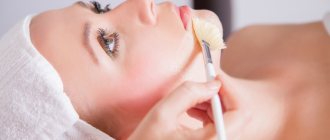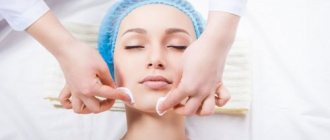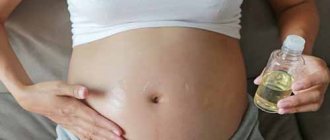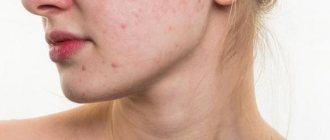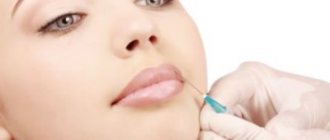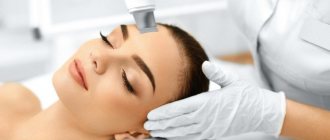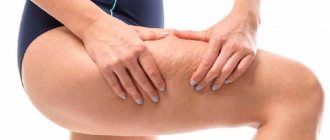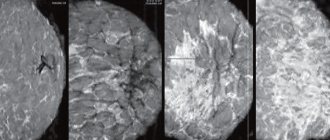The pregnancy period is a time when all processes in a woman’s body are subject to change. But the desire to always remain beautiful is unchanged at any time.
All that remains is to look for ways that are safest for the unborn child.
The most pressing problem for all expectant mothers is increased body hair.
There is still active debate about this. Advice! When in doubt, always consult your doctor.
In the initial stages, it is better to play it safe several times. Some believe that during pregnancy it is better to use a razor and not resort to any kind of depilation. Others believe that beauty is not complete without sacrifice. And if necessary, all sorts of procedures for removing hated hair will still be tried, despite the interesting situation. Both opinions are quite categorical.
What can you say about hair removal with sugar paste? Is sugaring allowed during pregnancy?
A few words about the procedure and its advantages
Sugaring is a type of depilation that involves the use of sugar paste and lemon juice.
The procedure can be carried out both in a beauty salon and at home. To prepare sugar paste, take 2 cups of sugar, half a glass of water and the same amount of lemon juice. You can read even more pasta recipes in the section on sugaring at home.
Then cook the mixture until it thickens and apply it warm to areas of hair. Strips are applied on top and then abruptly removed along with unwanted vegetation. Finally, a cream (lotion) is applied to relieve irritation.
Sugar hair removal during pregnancy - benefits:
- Environmental friendliness . The sugar paste contains only natural ingredients.
- Safety . During the procedure, the possibility of cuts and burns is excluded.
- Hypoallergenic . After sugaring, allergic signs occur in isolated cases.
- Compared to other types of depilation, the procedure using sugar paste is less painful .
- The risk of re-ingrown hairs after sugaring is quite small .
Epilation of the bikini area during pregnancy
Any hair removal technique (laser, flash, electric pulses) affects not only the surface of the skin, but also the deeper layers. The intimate area is located next to the uterus, so the effect of the devices on the internal organs and the fetus is unpredictable. It is not advisable to resort to such methods during lactation.
The opinions of cosmetologists and doctors on the safety of the listed techniques differ. Some claim that there is no harm in hair removal for pregnant women. Still, it is better to refrain from it.
There are many other methods for removing unwanted vegetation in a delicate place that are approved for expectant mothers.
Is it possible to do sugaring during pregnancy?
The pregnancy period is quite often one of the contraindications to sugaring.
However, in specialized salons they always pay attention to the woman’s condition.
As a result, a less dangerous remedy will be chosen for the expectant mother and the safety of the fetus. Important! The danger lies in the possible use of creams and lotions containing chemical components that can cause allergic reactions.
In addition, a low sensitivity threshold plays a huge role. With this indicator, it is better for a pregnant woman, especially in the 1st trimester, to refuse the procedure. Otherwise, it may cause a miscarriage.
However, despite some disadvantages, sugaring to this day remains the safest procedure for hair removal during pregnancy.
When and for what period is sugaring prohibited?
Sugaring and pregnancy (the doctor’s opinion is usually the same - you need to play it safe). to carry out the procedure only in the 1st trimester of pregnancy . Because even with the slightest pain, biodepilation can cause uterine tone and miscarriage.
Women who have not previously resorted to sugaring will have to refuse the procedure .
In this case, the body perceives the depilatory process more difficult. In this situation, it is better not to take risks, since it is not known what reactions will follow. Advice! Girls who experience bleeding wounds . These areas are a favorable environment for the growth of bacteria.
Sugaring during pregnancy (features, technology of work) is not recommended for those with uterine tone, so if you are afraid of pain, then you should refuse the procedure. This is certainly an emotional outburst for the expectant mother and serious stress for the fetus, especially in the early stages.
Is it possible to do sugaring at 38 and 39 weeks of pregnancy?
When preparing for a trip to the maternity hospital, every woman tries to remove all hair on her body. This is not a whim of a pregnant woman, but one of the important conditions of some medical centers.
If the expectant mother is not being prepared for a caesarean section , and the pregnancy proceeds without any complications, then there is no need to worry about the consequences of sugaring in the last weeks of pregnancy.
Sugaring of a deep bikini during pregnancy
The procedure is not recommended only in the 1st trimester of pregnancy. The rest of the time, sugaring is not a contraindication, especially if the expectant mother has already practiced hair removal in the intimate area using sugar paste.
Safety measures during the procedure
Hair removal should be done with well-washed hands. If the procedure is carried out in a salon, the technician must wear gloves. The use of antiseptic should not be neglected.
Before the start of shagaring, a test for an allergic reaction is carried out. If signs of this appear, depilation should be abandoned. Allergy symptoms during pregnancy can manifest themselves not only locally. It is also possible that the immune response may be anaphylactic shock.
If the expectant mother feels worse during hair removal, she must stop the procedure immediately.
Features of sugaring technology during pregnancy
Sugar hair removal during pregnancy is a gentle product for effective hair removal that does not contain chemical components.
The advantage of sugaring over other hair removal methods is that it is less painful, which is important for pregnant women. Attention! Pregnant women who have no experience in using sugar hair removal may experience stress and unusual pain during the procedure. This can increase the tone of the uterus and lead to complications.
The technique of performing sugaring during pregnancy is characterized by increased caution, especially in the deep bikini area:
- The master must be sensitive and attentive to pregnant clients and work exclusively with gloves;
- Before and after the procedure, the hair removal area is treated with an antiseptic chlorhexidine, most thoroughly in the genital area to prevent infections;
- The sugar mixture is applied cold so as not to stimulate blood circulation processes, which is harmful to the body of the expectant mother;
- The paste is applied against hair growth with gentle movements, and removed quickly and sharply. Improper execution of the procedure can contribute to the occurrence of wounds and bruises, which heal much worse in pregnant women;
- To reduce sensitivity during the procedure, the skin must be stretched;
- You cannot treat one zone more than twice;
- If there are skin defects, sugar hair removal should be postponed;
- It is considered a serious mistake to remove hair against its growth;
- If during the sugaring process the pain becomes unbearable and the baby begins to show excessive activity, the procedure must be stopped immediately.
Before the procedure, the master is obliged to notify pregnant clients about the possible consequences after sugaring in the form of premature birth and miscarriage.
Important! It is not recommended to use the sugar hair removal technique in the first trimester of pregnancy , if there is even a minimal threat of miscarriage, with exacerbation of skin diseases and the presence of diabetes.
Skin care after sugaring
After the procedure, you need to help the skin recover as quickly as possible, avoid infection of damaged areas and moisturize. Actually, the care itself is half the success, both of the last epilation and the one that follows.
- Immediately after the procedure, an antiseptic (Chlorhexidine) must be applied to the skin. It is approved for use in pregnant women and will not cause irritation. But it will prevent the appearance of inflammation and pustules at the site of the removed hairs.
- For the first 3-5 days after sugaring, you should also treat the hair removal area with antiseptics, because healing while waiting for the baby may take longer than usual. And the woman’s local immunity is significantly reduced.
- From day 6, when the skin is restored and there is no inflammation, you can start doing peeling. It is better to use them natural - with salt or nut shells. This is important for preventing ingrown hairs. General thermal procedures are prohibited during pregnancy, so you can put a cloth moistened with warm water on the affected area and hold it for several minutes. After peeling, be sure to apply any moisturizing lotion or cream.
Panthenol ointment or Aloe gel are good options. You can also use any creams/lotions for pregnant women - they are softer in composition. It is optimal to do scrubs or peels once every 3-5 days before the next hair removal, this will prevent ingrown hairs.
Below are a few videos on the topic.
To do or not to do sugaring:
Harm of the procedure for a pregnant woman:
Advice from a sugaring master:
In conclusion, it can be noted that everything is individual. If you feel excellent and there are no abnormalities in the course of pregnancy, why not treat yourself to smooth skin? But if there are still problems and controversial issues, it is better to leave experiments and radical hair removal methods for the postpartum period. In any case, the child’s health outweighs all the pros and cons and the choice should only be in his favor. And when he is born, he will please his mother with his health!
Liked? Share with your friends!
Precautionary measures
Sugaring during pregnancy (technology features) is carried out using warm sugar paste. This significantly reduces pain . That is why this procedure is often used as an alternative to wax depilation.
The procedure using sugar paste must be stopped if:
- any unusual sensations in the pregnant woman’s body;
- rapid heartbeat;
- nagging pain in the lumbar region;
- pain of any localization in the lower abdomen;
- if the uterus has become toned.
It should be noted that many pregnant women do not consider it necessary to inform the master about their situation. This position is fundamentally wrong. It is better to find a specialist who will carry out the procedure taking into account the condition of the pregnant woman than to worry about the result.
Advice! Be sure to inform your cosmetologist about your situation so that the hair removal procedure takes into account this factor.
Anesthesia during pregnancy
Hair removal for pregnant women can be performed under local anesthesia. It is worth highlighting several drugs for pain relief.
- Emla cream 5%, which contains lidocaine and prilocaine. It is applied to the skin in a thin layer, without rubbing, and covered with cling film for one hour. Then remove with a towel or wash off with water. This cream helps reduce pain. But to use it during pregnancy, you must consult your doctor. You can purchase it at a pharmacy or directly from a sugaring specialist.
- Spray with lidocaine 10%, which affects only the mucous membrane. It is least suitable for pain relief in the bikini area. Apply the spray 3-4 hours before the procedure, covering the skin area with cling film. Before use, consultation with a doctor is required.
- Painkiller tablet (nurofen, ketonal, nise). This method is prohibited for pregnant women due to the harmful effects of the drug components on the child.
- Before the sugaring procedure, you can steam the skin, so the unpleasant sensations will be less noticeable.
- There is a theory that from 10 to 11 and from 19 to 21 – during these periods of time, pain is dulled, so it is permissible to try it.
Shaving
The most popular and safest way to remove unwanted hair during pregnancy. You can shave your bikini area at any time. The main thing is to do this carefully so as not to scratch the skin. You cannot shave your body dry; a special shaving cream and gel will make the procedure easier.
In the last trimester, doing intimate depilation with a razor yourself will become inconvenient. You will have to use a mirror or ask a loved one for help.
Contraindications
Sugaring and pregnancy are quite compatible. But there are a few “buts”:
- Presence of diabetes mellitus.
- Skin infections, papillomavirus.
- Chronic diseases in an acute form.
- The presence of colpitis, thrush (using sugar paste in the intimate area will be an ideal environment for the spread of bacteria).
- Low pain threshold.
- Allergic diseases.
- Boils, other skin manifestations.
These factors are absolute contraindications to sugaring during pregnancy.
By continuing to monitor her appearance, the expectant mother shows that she is proud not only of future motherhood, but also of her beauty. This means that, despite her interesting position, she is the ideal of a real woman.
Doctors' opinions
Eduard Vasilievich, gynecologist, 40, years old, Moscow. Sugaring can be classified as a procedure that causes minimal harm, but while pregnant, I do not recommend that patients resort to any methods of hair removal that involve tearing it out. I advise women not to even shave their hair in the intimate area, but to carefully trim it with scissors. Due to changes in hormonal levels, it is difficult to predict what the body's response to an irritant will be.
Valentina Georgievna, endocrinologist, 52 years old, Perm. Pregnant women should not remove hair with sugar paste or any other product. Despite the contraindications, most pregnant women ignore medical advice and then complain about complications.
Sugaring is accompanied by pain, which changes the functional activity of all systems and organs. The heart rate changes, lymphatic and circulatory circulation is disrupted, muscle tone increases, etc. All these processes negatively affect the intrauterine state of the fetus and therefore cannot but affect the course of pregnancy.
